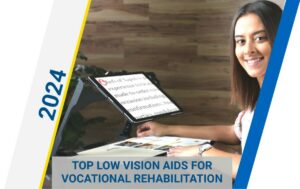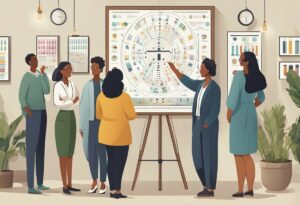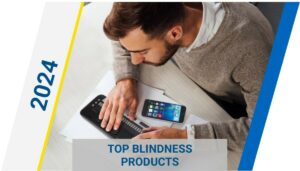Diagnosed with Macular Degeneration… Now What (2 of 12) – Optometrist
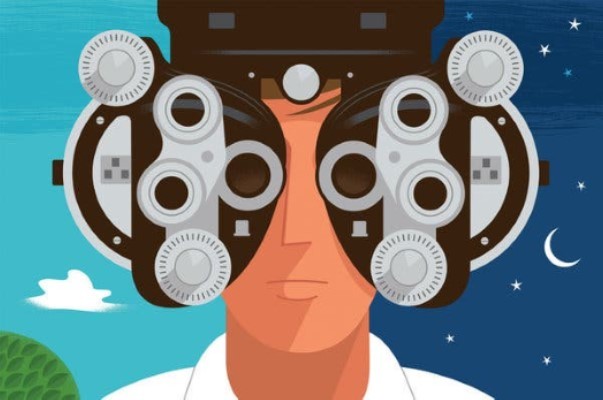
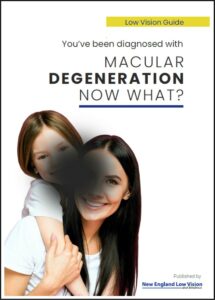
Go to this link to order your printed copy of our Low Vision Guide – https://nelowvision.com/product/macular-degeneration-now-what/
So, you have been diagnosed with Macular Degeneration, now what? Many, when being told they have Macular Degeneration, inaccurately hear, “I’m going blind”, and that can feel like your whole world is collapsing.
It is extremely rare to go completely blind from Macular Degeneration, whether you have either the wet or dry type. If someone tells you that nothing more can be done, that can be very depressing and is often not completely correct. What matters is a better understanding of how to navigate the landscape of the professionals who can assist you with adapting to a world of vision loss.
By the way…. congratulations, you have now become a carpenter! Yes, a carpenter…meaning you now need to assemble a new toolbox of 12-24 new ‘vision-loss’ tools to help you with seeing both near, intermediary and distance objects.
In this 12-part Macular Degeneration Low Vision Guide, I have outlined ideas for you or a loved one to consider when diagnosed Macular Degeneration. It is important to note that not all these action steps are required, but they should be given strong consideration.
#2: Optometrist (Specializing in Low Vision) – Make an appointment with a Low Vision Optometrist
Not all Optometrists specialize in Low Vision. Make sure to schedule an appointment with a Low Vision Optometrist. Ask your Ophthalmologist if they have access to an Optometrist who specializes in low vision rehabilitation.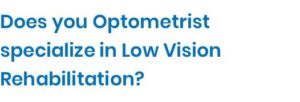
Low vision rehabilitation is critical because this type of Optometric specialist will have access to a suite of options from low vision optical lenses, hand-held magnifiers with high magnification, monocular scopes, glare shields, and some may be able to introduce bioptic lenses and electronic video magnification.
Your Low Vision Optometrist is an eye doctor who has earned the Doctor of Optometry (OD) degree. Your Optometrist can examine your eyes for both vision and health problems, and correct refractive errors by prescribing eyeglasses and contact lenses.
Some Optometrists, but not many, may also provide low vision care and vision therapy. It is critical to know if your Optometrist specializes in Low Vision Rehabilitation.
Some Optometrists in the United States also are licensed to prescribe medications to treat certain eye problems and diseases. The scope of medical care that can be provided by optometrists is determined by state law. Your Optometrist may also participate in your pre and post-operative care if you have eye surgery performed by an ophthalmologist.
With few exceptions, Optometrists in the U.S. are not trained or licensed to perform eye surgery. Generally, your Optometrist must complete a four-year college degree program in the sciences, plus four years of postgraduate professional training in optometry school.
<Click here to read about step #3: Assistive Technology Experts>
<Tell your Ophthalmologist about our life-changing resources.>
<Click here to order your printed copy of this 12-part Resource Book>
<Click here to download a PDF of the entire report.>
Scott V. Krug is the President of New England Low Vision and Blindness, a company located in New England, and specializes in bringing hope to people who are low vision or blind through technology, training, and care. Scott has been working in the field of technology and optics for people who are low vision or blind since 1992. Website: NELowVision.com.


